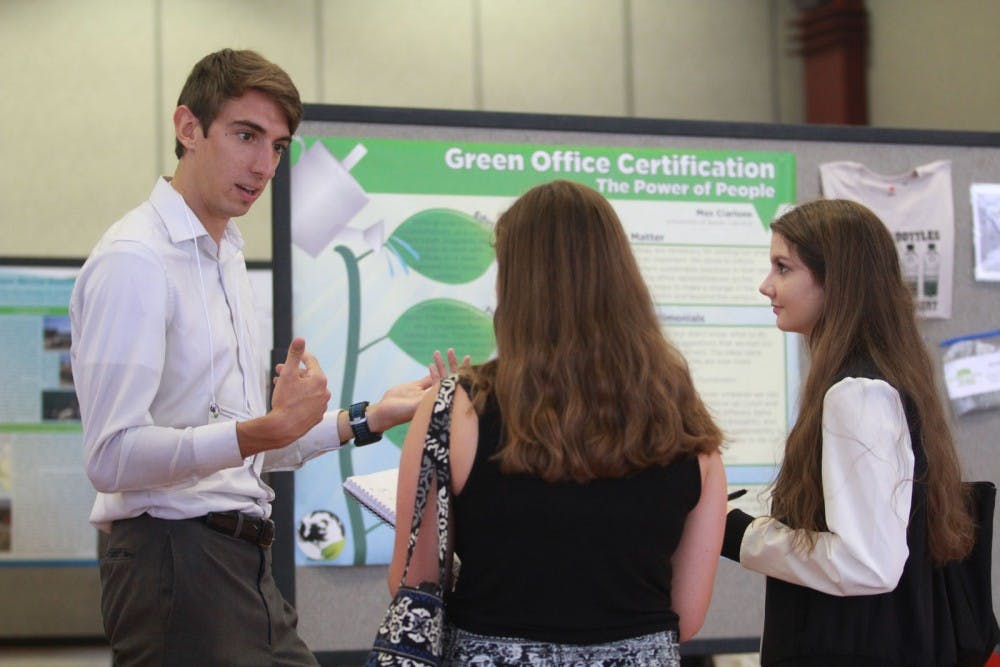Sustainable Carolina gave a detailed look into the effects of campus life on the environment Friday at its third annual showcase. Contributors, including students and university departments, emphasized not only the importance of sustainability on campus but the community effort involved in helping USC become more eco-friendly.
Chantal Fortin, sustainability coordinator for Carolina Dining, is part of the effort to reduce waste in dining halls. At the beginning of the semester, Carolina Dining “weighed the waste” to investigate the amount of food that was being thrown away by students in three dining halls: Bates, Gibbes and Honors.
The results weighed in at an average of about 11 pounds per hour, which adds up to 85,000 pounds per year — the weight of a Mack truck. Fortin said this conclusion was "scary, really scary."
Those numbers pertain to only three of the 31 dining locations that Carolina Dining offers. However, Fortin said some on-campus dining locations, such as Einstein Bros. Bagels and the Colloquium Cafe, are finding ways to reduce their waste through a student-led food recovery network that donates excess food to local charities.
Being sustainable involves more than limiting food waste. Fifteen on-campus locations have been “green certified” by Sustainable Carolina. The group hopes to have a total of 30 on-campus locations green certified by the end of the spring 2017 semester.
Max Ciarlone, a third-year environmental science student, said becoming green certified is a three-step process that involves appointing an office coordinator, meeting five prerequisites and filling out surveys for each member of thie office as well as the office as a whole.
Students attending the event had the opportunity to interact with the presenters and express their own concerns and views for the future.
“As a bio major, if we don’t keep the environment at least kind of decent, I have no job in the future,” said David Arcuri, a third-year biology and math student.
Sustainable Carolina is continuing its efforts to inform students about sustainability on campus with its Nov. 3 Reclaimed Runway fashion show, which uses recycled material in a new way.
“I think the fact that we are having events like this, and that we do have an organization devoted to this and who is able to put on events like this with this kind of people coming in, people showing off, means that we are trending more towards a more sustainable campus,” Arcuri said.

